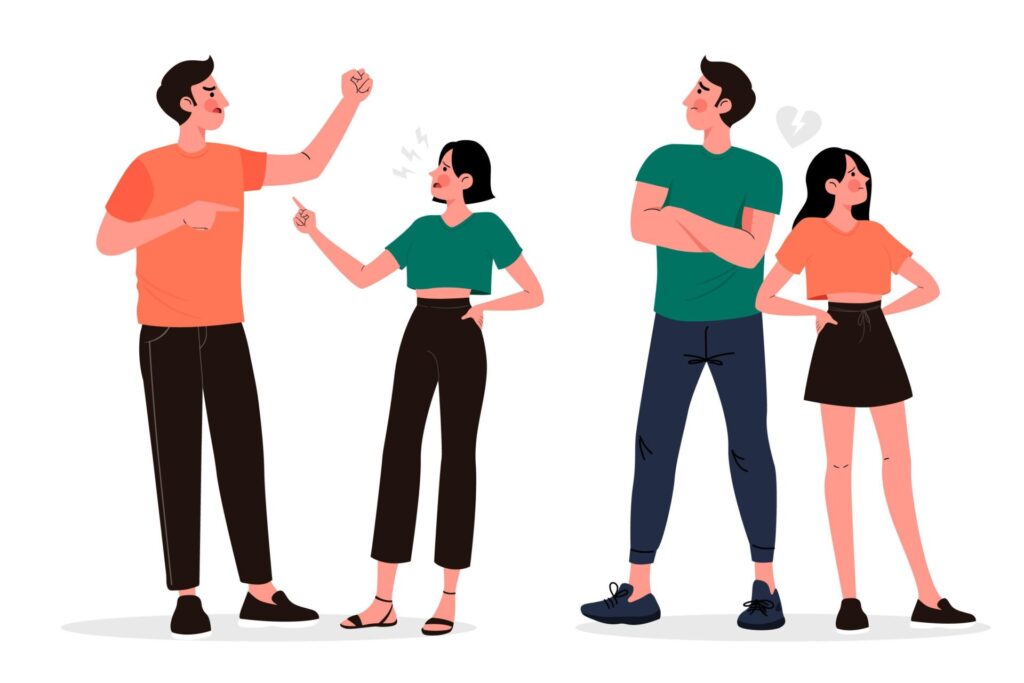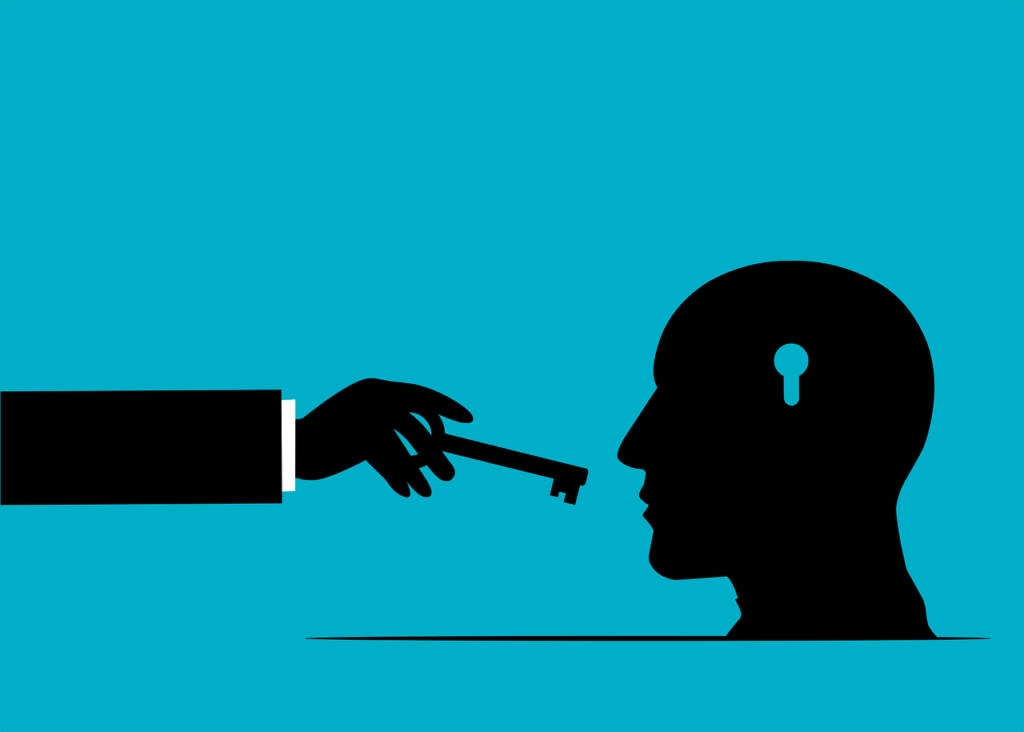Have you ever felt misunderstood, ignored, or even rejected during a conversation? Probably because most people don’t know how to communicate effectively. We often focus on what we want to say and how to interest others in our topic or message. However, effective communication is much more than just exchanging information and expressing our opinions. You need some real communication skills!
The truth is that to communicate effectively, you don’t need to perfect your speaking skills to be interesting, but rather develop the ability to listen carefully. When you learn to truly listen to your conversation partners and show genuine interest in their perspective, they will want to talk to you more often and become interested in what you have to say.
By mastering the art of listening, you can break down your communication barriers, build stronger relationships based on mutual respect and trust, improve your collaboration skills, and learn to resolve conflicts.
It’s time to shift your attention from speaking to listening.

1. Active Listening
Did you know that the way you listen to others can completely change the perception of your relationships with them?
Many people make the mistake of focusing only on what they want to say instead of truly listening to their conversation partner. But what will happen when you change your approach and start actively listening?
Conduct the experiment and see for yourself what will happen.
Engage in the conversation:
During a conversation, don’t just focus on passively receiving information, but engage in the dialogue by showing interest and empathy towards the speaker. Make them feel heard, instead of concentrating on what you want to say on the topic.
How to do it?
- Listen carefully to what the other person has to say, and try to understand their message.
- Show interest, for example, by nodding, agreeing, or maintaining eye contact
- Ask questions to show your interest in the conversation.
What does it give?
Such an approach not only builds a better relationship with the speaker but also shows that you genuinely care about what the other person has to convey.
Conclusions
You’ve surely noticed that people are more willing to talk to you when they see that you are interested in what they have to say.
From your own experience, you know that it’s better to converse with a person who listens carefully and is interested in the conversation. Therefore, to improve your communication skills, it’s you who needs to be an active listener and create an atmosphere of mutual understanding and respect.
Tip:
Avoid distractions such as cell phones, watches, or laptops. Focus all your attention on the speaker.

2. Clear and Concise Language
After learning to listen attentively, you should work on effectively conveying your thoughts and ideas. You must be able to express yourself clearly and precisely. This means that your statements should not contain unnecessary details. Remember that clear and concrete language is not only a matter of word choice but also the ability to think logically and structure your thoughts in a clear and organized manner.
How to do it?
Use simple and understandable words, avoid complicated terms that may be unclear to your audience. Make sure your sentences are short and logical and also pay attention to whether they stray from the main topic.
Clear and concrete language will help you avoid misunderstandings and errors in communication. It will also help in building trust and respect among your interlocutors because they will know they can rely on your words.
“If you can’t explain it simply, you don’t understand it well enough.”
Albert Einstein
3. Empathy
Empathy is a key skill in communication, which involves understanding and compassion towards another person’s perspective. It’s not just about recognizing emotions but also the ability to empathize with the situation, thoughts, and feelings of another person.
Practice Active Listening
When talking to someone, try to listen carefully to what they have to say. Then, try to summarize what has been said in your own words. This will demonstrate that you have genuinely listened and understand the other person’s perspective. To demonstrate understanding during the conversation, you can say, for example: “Thank you for sharing your thoughts, I understand what you’re trying to convey.”
By using an empathetic approach in communication, you can build stronger, more meaningful relationships. When you show that you care and understand the other person’s perspective, they feel more understood and accepted, leading to increased trust and deeper connections.

4. Self-confidence
When we communicate with confidence, we are more likely to convey our message clearly, persuasively, and with impact. On the other hand, a lack of confidence can lead to hesitation, ambiguity, and ineffective communication.
How can we build confidence in communication?
- Prepare thoroughly.
Lack of self-confidence in communication mainly stems from fear of not knowing what to say, so prepare thoroughly for the conversation or presentation. Organize your thoughts and practice your speeches to feel more confident and in control of the situation. - Positive thinking.
Our inner self-talk can significantly influence our self-confidence. Replace negative thoughts with positive affirmations. Instead of saying “I’m not good enough,” say “I am well-prepared and capable of effectively communicating my ideas.” - Feedback.
Ask family, friends, or mentors for feedback on your style and manner of communication. They may give you insights into what you’re doing well, allowing you to focus on and leverage your strengths, or they may point out areas for improvement.
Benefits of confidence in communication:
Confident communication can be more persuasive and influential, making you more willing to express your thoughts clearly and understandable, which in turn makes people more likely to listen to and respect your opinions.

5. Asking questions
One of the most powerful tools for effective communication is the skill of asking questions, which can significantly impact the quality of our interactions with others. It is an incredibly important element that enriches conversations and deepens understanding of the other party.
Why is it so important?
- Encourages engagement from the conversation partner. Questions show the other person that we are truly listening to what they are saying and want to learn more about the topic.
- Helps better understand the other person’s perspective. Questions can help us gain a better understanding of the other person, enabling us to react in a more empathetic and effective manner.
- Clarifies misunderstandings. When an issue is unclear, asking the right questions can help prevent conflicts.
Tip:
To better understand the conversation partner, you can also paraphrase what they said. This will show the other person that you were truly listening and understand what they said. It will also help you better remember the conversation.

6. Nonverbal communication
Nonverbal signals, such as body language, facial expressions, and tone of voice, can convey as much information as spoken words, and sometimes even more. Awareness of gestures, facial expressions, and body posture can significantly change how your message is received and interpreted, so make sure your nonverbal communication is consistent with your message.
“The most important thing in communication is hearing what isn’t said.”
Peter Drucker
Gestures can reinforce or contradict our verbal message. For example:
- A speaker using open and expansive gestures (e.g., sweeping movements) may express confidence and enthusiasm.
- Someone fidgeting or tapping their feet may come across as nervous or impatient.
- Pointing a finger may be perceived as aggression.
Facial expressions can reveal our true emotions, even if we try to hide them. Consider the following:
- A smile can express friendliness, approachability, and warmth.
- Furrowed brows or clenched lips may indicate skepticism.
- Avoiding eye contact or displaying a “poker face” may make others feel uneasy or distrustful.
Our body language can say a lot about our attitudes, intentions, and feelings. For example:
- Maintaining good posture can add confidence and authority.
- Crossing arms or legs may give the impression of defensiveness or closed-mindedness.
- Leaning forward or tilting the head can show interest and engagement.

7. Respect
When you show respect for the speaker and their views, you create a safe and conducive environment for open and honest communication.
What does respect look like in communication?
When engaging with someone, give them your undivided attention. Avoid interrupting and instead focus on understanding their perspective. Refrain from making assumptions and jumping to conclusions about the speaker’s opinions or beliefs. Instead, ask open-ended questions to clarify misunderstandings. Speak in a respectful tone and avoid using language that seems condescending or superior.
Real-life scenario:
You’re having a heated discussion with a friend on a controversial topic. Despite differences, you strive to listen to their point of view and respond thoughtfully, without resorting to personal attacks and insults.
By incorporating respect into your communication style, you’ll become a more effective and empathetic communicator, leading to building stronger relationships and better outcomes both personally and professionally.

8. Persuasion:
The ability to convince and influence others through clear arguments, skillful presentation of facts, and building trust.
How to achieve it?
- Self-confidence – when persuading others of your idea, you must first believe in it yourself.
- Building trust – if your audience trusts you, they are more likely to be open to your ideas.
- Clear arguments – well-constructed argumentation is essential to persuade others. Organize your thoughts into a logical sequence and support them with evidence. Use data, statistics, and expert opinions to back up your claims.
For example, if you’re negotiating a salary increase, you need to present a clear argument confirming why you deserve the raise, emphasizing your achievements, skills, and market value.
Tips for improving persuasion skills:
- Get to know your audience.
- Show enthusiasm and confidence.
- Be open to opinions.
- Practice, practice, practice.
9. Feedback:
Good communicators not only effectively express themselves but also know how to constructively receive feedback. It means they are open to the opinions, ideas, and criticism of others and can use it to improve themselves and their work.
When we receive constructive feedback, we can learn from our mistakes, identify areas for improvement, and adjust our approach to achieve better results.
If you disagree with someone’s criticism, ask for specific examples that will help you better understand their opinion. Take action and make changes based on the feedback you received to demonstrate your commitment to improvement.
Example of how you should behave:
During a team meeting, a colleague suggested that your presentation could be more engaging if it included more visual aids. You take these comments on board, improve your presentation, and receive positive feedback from the team during the next presentation.

10. Flexibility
Being flexible means being open to change, willing to adjust your approach, and responsive to feedback. It’s about the ability to adapt when circumstances change or when new information arises. Flexible individuals are better prepared to deal with unexpected challenges and can thrive in dynamic environments.
Be ready to change your communication strategy if it’s not giving you the desired results.
The behavior of a flexible person:
You are offered a new project that requires learning new skills or taking on a different role. A flexible person would be willing to step out of their comfort zone, acquire new skills, and adapt to the new role.
You are working on a project, and new data comes in that denies your initial assumptions. A flexible person would be willing to reconsider their approach, adjust the strategy, and incorporate new information to ensure the project’s success.
Summary
Remember, you don’t have to be born with all these traits – everything can be learned. Effective communication is a skill that can be developed through practice, patience, and perseverance. By incorporating these 10 powerful communication skills into your daily interactions, you will be better equipped to convey your message, build strong relationships, and achieve your goals.
Remember:
- Active listening is the foundation of effective communication
- Clear expression of thoughts helps avoid misunderstandings
- Empathy helps understand and establish deeper relationships with others
- Self-confidence will help engage the listener with you
- Asking questions helps better understand the other person
- Nonverbal communication conveys as much information as words
- Showing respect for the speaker and his views will return to you
- Persuasion will help you convince others of your opinion
- Feedback is essential for development and improvement
- Flexibility means being open to change and ready to adapt to new situations.
Start improving your communication skills today and watch as your relationships, career, and personal growth improve!

Closing tips:
Practice mindfulness to improve your communication skills. Mindfulness helps you stay present, focused, and aware of your thoughts and emotions, leading to more effective communication.
Instead of blaming or accusing others, try using “I” statements to express your thoughts and feelings. This helps avoid misunderstandings and defensiveness. For example, say “I feel frustrated when…” instead of “You always…”. This simple shift in language can make your message better received, and the listener will not feel attacked.
Encourage deeper conversations by asking open-ended questions that cannot be answered with a simple “yes” or “no”. Instead of asking “Do you like this?”, ask “What do you think about this?” or “How does it make you feel?”. This will help you gather more information and build deeper relationships with others.

Leave a Reply